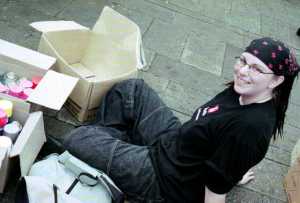The programme is now out for this weekend’s conference, Competing Responsibilities: The politics and ethics of responsibility in contemporary life. I’m excited to hear keynote speakers Nikolas Rose and Cris Shore, of course, but I am also looking forward to hearing how other presenters are rethinking responsibility and responsibilization as theoretical and analytical concepts. SavageMinds.org recently featured an interview with conference organisers Catherine Trundle and Susanna Trnka which nicely introduces the conference theme.
I was inspired by the conference theme and have developed the paper below (based on my PhD research) to focus on how grassroots organisations become responsibilized in the absence of effective state interventions in urban poor areas.
TITLE:
Responsibilizing grassroots organisations in “forgotten places” in Howrah, West Bengal, India.
ABSTRACT:
In 1991 the Government of India implemented widespread economic liberalisation policies which, as well as contributing to India’s recent economic rise to global significance, had important and uneven effects on various social groups within India. Despite official reports of declining poverty in India, neoliberal ideas and policies have not improved the lives of those living in poverty – many of whom are Muslim – in bastis in Howrah, West Bengal. This paper argues that Howrah’s bastis are “forgotten places,” historically and politically constructed enclaves that are neglected, but nevertheless deeply inhabited, by the state. In these bastis, services that are the responsibility of the state – such as access to education – are not adequately provided for, leaving a gap that NGOs and grassroots organisations try to fill. This paper provides an ethnographic account of what happens in such “forgotten places” by describing the efforts of Howrah Pilot Project, an organisation that seeks to address this gap by running a grassroots-level, nonformal school in one of Howrah’s bastis. Processes of ‘active forgetting’ serve to responsibilize such organisations, but their practices need to be augmented by a responsive state in order to achieve meaningful, long-term, beneficial change.
